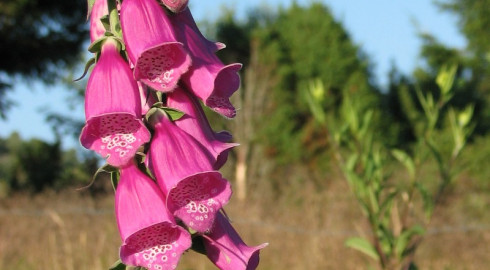Protection de l'environnement

Mountain species should be just admired and not touched: It is best not to pick mountain flowers, since it can be a protected species, in which case you could be fined, especially if you are in the Parc Naturel Régional (des Ballons des Vosges) or in a natural reserve. Similarly, it’s best not to touch, break or move grasses, mosses, branches, twigs or pebbles. Without realizing it, you could destroy the habitat of small animals and insects that nest or burrow under a rock or tree branches. Respect wild life and keep your distance: If you see an animal, do not attempt to approach it. Wild animals are not used to being in contact with humans and you never know how they might react. Don’t put yourself at unnecessary risk. If you see young animals, don’t try to touch them or take them in your arms: the animal then will permeate your scent, which could cause its mother to abandon it as she may no longer recognize it. During your hike, you may also cross a field, be sure to always close fences and gates behind you. And take care not to get an electric shock from certain fences!
Avoid leaving the footpaths: Beautiful trails and footpaths have been developed and are regularly maintained to allow walkers and hikers to enjoy nature at first hand. By leaving the footpaths, in addition to endangering yourself or getting lost, you may enlarge the trails and trample soils and vegetation.
Go unnoticed: Always leave the place where you stopped as it was when you arrived by leaving no trace of you being there. However in the mountains rubbish and dustbins are far and few between. So make sure you have a rubbish bag in your backpack. You can put your rubbish in it, take it with you and throw in a bin when you arrive at your destination. To save space in your backpack, try limiting packaging as it could quickly take up space and fill your backpack.
Average lifespan of waste in nature:
Paper tissues: 3 months
Newspaper: between 3 months and 1 year
Matches: 6 months
Fruit skin: between 6 months and 2 years
Chewing gum: 2 to 5 years
Cigarette butt: 1 to 15 years
Packaging: 100 to 450 years
Aluminium tin or can: 100 to 500 years
Plastic bag, bottle or cup: 100 to 1,000 years
Glass bottle: 4,000 years
Be discreet: Admire and enjoy the peace and tranquillity of nature. Don’t talk loudly or shout, which would tend to frighten animals, which could then put you or themselves in danger, especially at dawn or dusk. Noise pollution can affect the environment that you are passing through.
Plan ahead: When hiking in nature, you must be careful not to trigger a something that could damage nature. Even if it is not specified in any regulation, avoid using anything that could cause a fire (cigarette, lighter, camp-fire, etc...) or make sure you do it safely.
Respect biodiversity: Even if they are considered as ‘natural’ or ‘bio-degradable’ waste, don’t throw away stones or seeds from fruit and vegetables. Local species can quickly be stifled by foreign exotic species accidentally introduced by man.
